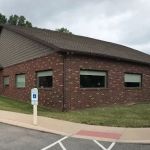How to Prevent Dental Erosion from Acid Reflux
php-template复制- Understanding Acid Reflux and Its Impact on Dental Health
- Common Symptoms of Acid Reflux
- How Acid Reflux Leads to Dental Erosion
- Effective Prevention Strategies for Dental Erosion
- Oral Hygiene Tips for Acid Reflux Sufferers
- Dietary Changes to Prevent Dental Erosion
- When to See a Dentist
Understanding Acid Reflux and Its Impact on Dental Health
Acid reflux, also known as gastroesophageal reflux disease (GERD), occurs when stomach acid flows back into the esophagus. This backward flow can sometimes reach the mouth, and when it does, it can lead to significant oral health issues. One of the most concerning consequences of acid reflux is dental erosion. The acidic content that reaches the mouth can gradually wear away the enamel on your teeth, leading to sensitivity, discoloration, and even tooth decay.
Understanding how acid reflux affects your dental health is the first step in protecting your teeth. In this article, we’ll discuss how acid reflux leads to dental erosion and explore effective prevention strategies to keep your teeth safe. With the right approach, you can mitigate the damage and maintain a healthy smile despite struggling with acid reflux.
Common Symptoms of Acid Reflux
Acid reflux often manifests with symptoms such as heartburn, a sour taste in the mouth, regurgitation of food or sour liquid, and chest discomfort. These symptoms can vary in severity and frequency, but when they occur regularly, they pose a risk to your oral health. The most obvious concern for your teeth is the acid that is regurgitated into the mouth, which can attack the enamel on your teeth.
If you’re experiencing these symptoms frequently, it's important to manage your acid reflux and take steps to protect your teeth from its harmful effects. The link between GERD and dental erosion might not be immediately obvious, but the consequences of ignoring the issue can be severe, leading to long-term damage.
How Acid Reflux Leads to Dental Erosion
When stomach acid reaches the mouth, it brings a high level of acidity that can break down the enamel on your teeth. Enamel is the protective outer layer of the teeth, and once it’s eroded, it doesn’t regenerate. This erosion can cause teeth to become discolored, sensitive, and prone to cavities.
The damage caused by acid reflux isn’t always noticeable at first. In fact, many people with GERD may not even realize that the acid is affecting their teeth until they begin to experience tooth sensitivity or discoloration. The acidity in the mouth can wear down enamel progressively, leading to significant damage over time.
Effective Prevention Strategies for Dental Erosion
Preventing dental erosion caused by acid reflux requires a multi-faceted approach. There are several strategies you can employ to protect your teeth from the harmful effects of stomach acid:
- Elevate the head of your bed: Sleeping with your head elevated can prevent stomach acid from traveling up into your esophagus and mouth while you sleep.
- Eat smaller meals: Large meals can trigger acid reflux. Eating smaller, more frequent meals can help reduce the frequency of reflux.
- Use antacids or other medications: Over-the-counter medications like antacids, or prescribed treatments from your doctor, can help reduce stomach acid and prevent reflux.
- Wear a mouthguard: If you’re prone to acid reflux during sleep, wearing a mouthguard can help protect your teeth from direct exposure to stomach acid.
Oral Hygiene Tips for Acid Reflux Sufferers
Proper oral hygiene is critical for preventing the damaging effects of acid reflux on your teeth. Follow these oral hygiene tips to protect your smile:
- Brush your teeth gently: Use a soft-bristled toothbrush and fluoride toothpaste to gently brush your teeth. Avoid brushing immediately after an acid reflux episode, as the enamel will be soft and more prone to abrasion.
- Use a fluoride rinse: Fluoride helps to strengthen enamel and protect your teeth from further damage.
- Drink plenty of water: Drinking water throughout the day can help wash away acid from the mouth and neutralize its effects.
Dietary Changes to Prevent Dental Erosion
Your diet plays a significant role in managing both acid reflux and the health of your teeth. Incorporating certain foods while avoiding others can help minimize the impact of acid reflux on your dental health. Here are some dietary recommendations:
- Avoid acidic foods: Citrus fruits, tomatoes, and spicy foods can exacerbate acid reflux. Reducing your intake of these can help protect your teeth.
- Increase alkaline foods: Foods like bananas, melons, and vegetables can help neutralize stomach acid and reduce reflux.
- Drink non-acidic beverages: Opt for water or non-citrus juices rather than acidic drinks like orange juice or soda.
When to See a Dentist
If you suspect that your acid reflux is affecting your teeth, it’s important to see a dentist as soon as possible. Dentists can identify the early signs of enamel erosion and recommend appropriate treatments to mitigate further damage. They can also help you create a comprehensive plan to protect your teeth from acid reflux.
Early intervention is key to preventing long-term damage to your teeth. By addressing the issue early and adopting proper oral hygiene and dietary changes, you can minimize the risk of dental erosion caused by acid reflux.







 Dental Health Professionals5.0 (776 review)
Dental Health Professionals5.0 (776 review) Family Dental Group5.0 (2 review)
Family Dental Group5.0 (2 review) Pine Orthodontics4.0 (134 review)
Pine Orthodontics4.0 (134 review) Madison Oral Surgery & Dental Implants4.0 (661 review)
Madison Oral Surgery & Dental Implants4.0 (661 review) Loma Linda University Center for Dentistry and Orthodontics4.0 (24 review)
Loma Linda University Center for Dentistry and Orthodontics4.0 (24 review) Fry Orthodontic Specialists4.0 (71 review)
Fry Orthodontic Specialists4.0 (71 review) The Importance of Oral Health Education During Pregnancy for a Healthy Pregnancy
The Importance of Oral Health Education During Pregnancy for a Healthy Pregnancy Best Tips for Brushing Your Teeth Properly for Healthy Gums: Essential Techniques for Oral Health
Best Tips for Brushing Your Teeth Properly for Healthy Gums: Essential Techniques for Oral Health Why Skipping Dental Checkups Can Lead to Bigger Oral Health Problems
Why Skipping Dental Checkups Can Lead to Bigger Oral Health Problems Advantages of Porcelain Dental Restorations
Advantages of Porcelain Dental Restorations How Can Diabetes Cause Tooth and Gum Problems? Preventing and Managing Oral Health Issues
How Can Diabetes Cause Tooth and Gum Problems? Preventing and Managing Oral Health Issues Healthy Habits for Promoting Good Oral Health and Hygiene: Tips for a Healthy Smile
Healthy Habits for Promoting Good Oral Health and Hygiene: Tips for a Healthy Smile